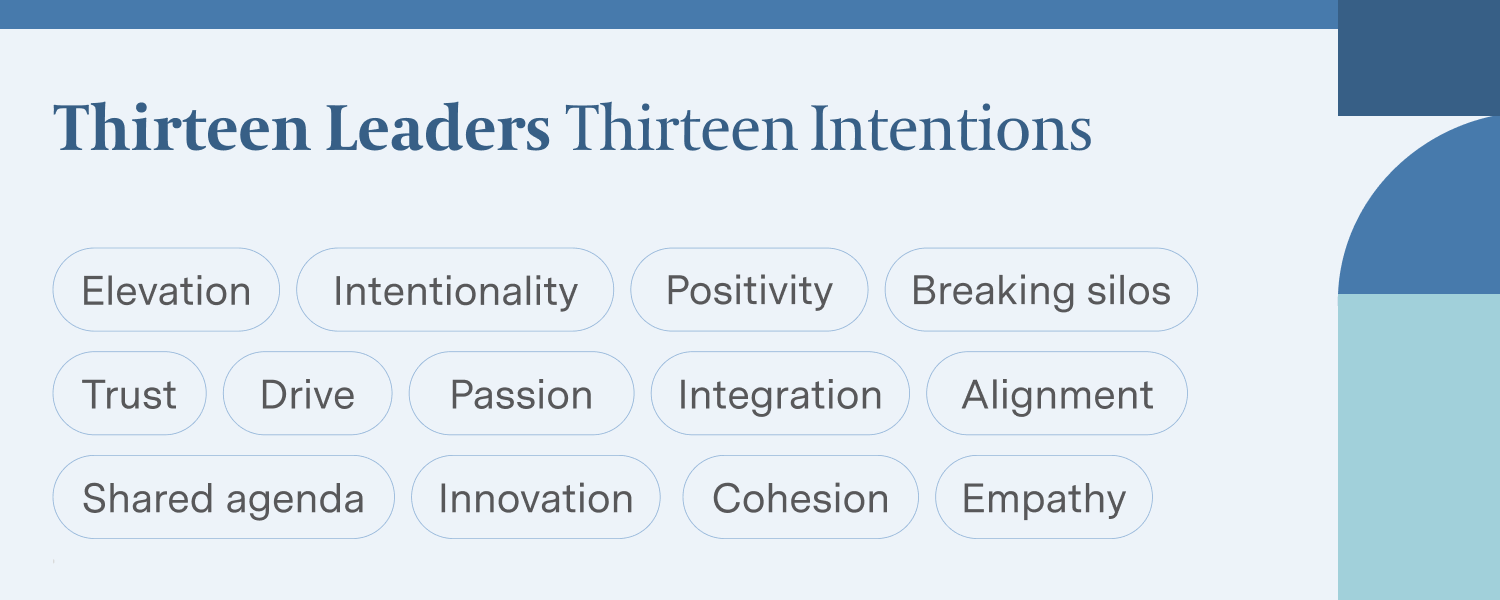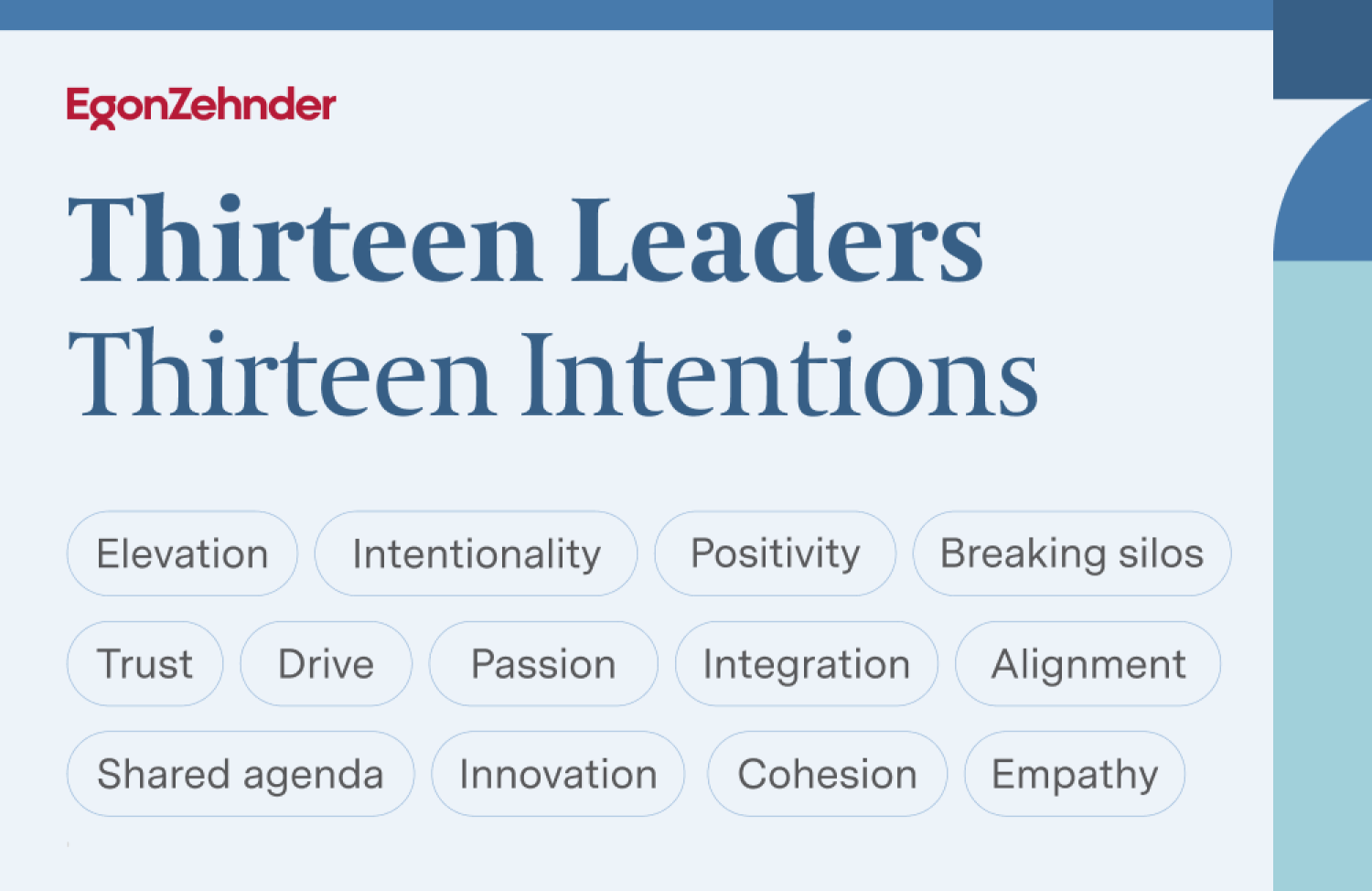In the heart of Diriyah, we brought together 13 HR leaders for an intimate breakfast conversation on the future of leadership.
In the heart of Diriyah, we brought together 13 HR leaders for an intimate breakfast conversation on the future of leadership.
Against the backdrop of this historic city—birthplace of the Kingdom and a symbol of Vision 2030—we explored how leadership teams are evolving, the expanding role of the CHRO, and the transformative impact of AI on organizations.
The setting sparked meaningful dialogue and powerful contributions, highlighting the critical role HR leaders play in shaping resilient, future-ready teams.
What follows are the highlights from our conversation:
Thirteen Leaders, Thirteen Intentions
Thirteen Leaders, Thirteen Intentions
We welcomed 13 HR leaders from across industries for a rich and open dialogue on executive team development. We began with a simple question: What one word describes the culture you aspire to build within your leadership team? The answers painted a powerful collective vision: elevation, trust, drive, passion, integration, alignment, shared agenda, innovation, cohesion, empathy, intentionality, positivity, and breaking silos. Thirteen leaders, thirteen intentions - a reflection of the cultures many are striving to create within their organizations.


Team Development at the Core
Team Development at the Core
Team development was at the heart of our conversation - an area where many CHROs are increasingly focusing on. While individual development remains critical, there is growing recognition that it’s the collective performance of the leadership team that directly drives business outcomes.
We heard from an HR leader who recently led a two-day offsite with their executive team, facilitated by Egon Zehnder. He shared a candid reflection: “While we are very competent leaders in our respective areas, we realized there was more to do in order for us to fully operate as a team - we had to further create a team identity.” What followed from that offsite was the creation of a set of principles that now anchors how they work, lead, and collaborate in a more effective, grounded and intentional way. Ultimately, it is a full cohesive team - how it reflects, aligns, and challenges itself - that directly shapes business performance. When executive teams pause to assess their dynamics and intentionally evolve how they work together, they don’t just improve collaboration, they generate powerful results.
That story opened the door to a broader conversation. Several recurring themes emerged:
- The CHRO as connector and catalyst. More than ever, CHROs are playing the role of integrators – facilitating retreats, driving alignment, and enabling the unspoken to be surfaced. Without that intentional effort, teams risk operating in silos.
- The focus on nurturing psychological safety. A high-functioning team requires candor and care. Creating environments where hard truths can be voiced - without fear - was seen as essential to moving beyond superficial dialogue. HR leaders know that they have a major role to play in building and role-modeling that environment within the leadership team.
- Coaching and development. There was strong interest in how to bring new capabilities into leadership teams. This opened the door to a topic that quickly took over the room: Artificial Intelligence.
How HR Leaders can Leverage the Rise of Artificial Intelligence
How HR Leaders can Leverage the Rise of Artificial Intelligence
The topic of AI sparked genuine curiosity and urgency given its steep rise in adoption by HR teams and organizations at large. Leaders shared use cases ranging from automating policies and building development plans, to using AI coaches for junior staff and enabling customer engagement. Some of these included:
- Drafting internal communications and automating basic HR processes
- Enabling policy self-service through AI interfaces
- Supporting sales and client acquisition
- Coaching junior team members with AI tools
- Strengthening employee value propositions
This naturally raised deeper questions:
- What does leadership look like in the age of AI?
- What is AI’s impact on assessing and developing leaders? What new competencies should we consider?
- What capabilities must HR now master to lead through this shift and how to appropriately assess for these skills and competencies?
Want to explore how these insights could shape your team’s development? Please get in touch to connect with us and continue the dialogue.





